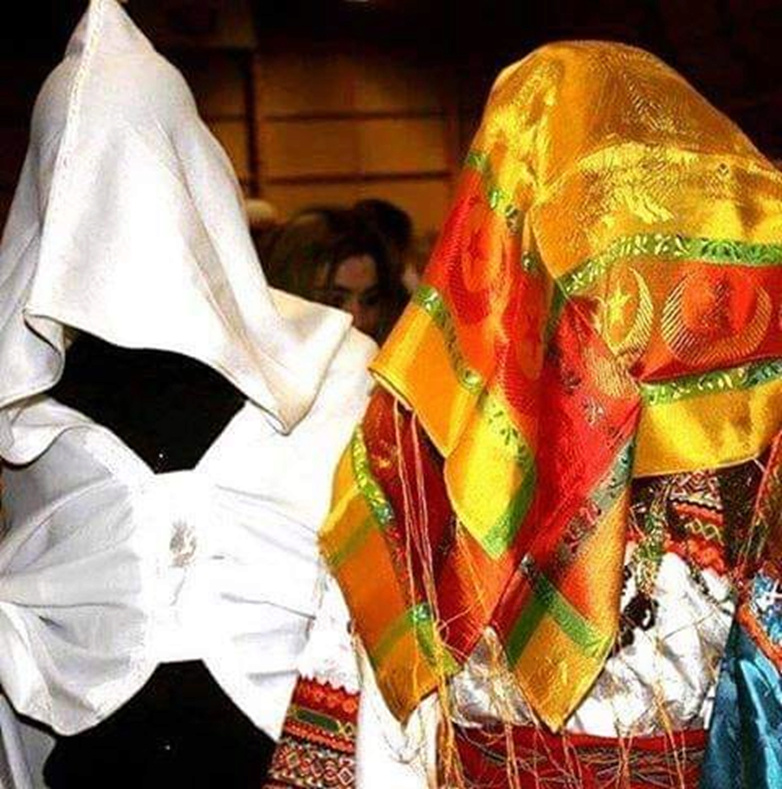Very old wedding tradition.

Aḥidus in Kabylia.
Very old wedding tradition. Aḥidus in Kabylia. Aḥidus is a Berber tradition linked to marriage, originating from north-central East Africa (Kabylia, Aures, Kutama, South Tunisia). It was transported to Morocco during ancient migrations and it is there that one of its forms has been best preserved, although very folklorized and with a total loss of meaning, origin, and of meaning.
We will therefore see how Aḥidus operated in the past in Kabylia. There were therefore two ways of getting married: that of marriages organized by parents (often following the request of the man who fell under the spell of a woman he wants for life), and that of seizing his luck during Aḥidus.
It is an annual festival determined by a large assembly bringing together the entire confederation around September 20 or 25, each confederation had its place to celebrate Aḥidus. Everyone was there, whether to attend or to participate. The young women (Tilemẓiyin) not taken come there adorned, hairstyled and dressed in their most beautiful dresses and timleḥfin, the women taken only participated to dance. The young men (Ilemẓiyen) come there with their hair covered in their most beautiful barnous made by their sisters and mothers, the men taken, as their female counterparts were there to dance.

A ritual dance then began, both sexes were arranged such that the women were on one side and the men on the other, both in circular rows taking steps forward and backward to the rhythm of the bendir (Tallumt, Abendayer) and sometimes the addition of the flute (Taẓuẓawt) and songs (Icewiqen). During the dance, each man hands a cloth to the woman he likes, and in the most discreet and modest way the woman, even having received a lot of cloth, seizes that of the man what desire for marriage and continues her dance only with him, leaving their place to another man and another woman. If the fabric has not been grabbed then the two continue their dances in their respective ranks.
The party ends around midnight (azgen n yiḍ) those whom destiny has brought together go together to the man's house to marry as is the usual custom. To those who have not found their happiness we say in Kabyle “asen-yefk Ṛebbi sber ɣer uḥidus id-itteddun” and they will wait until next year. Another, more tragic scenario presents itself, when a man very much in love with a woman sees the latter leave with another, he becomes an "amsebbel" warrior and will die in combat.

The tradition saw its end when the French banned collective marriages in Kabylia. Today many places in Kabylia in the Aurès and around Béchar bear the name of Aḥidus (Tamgert uḥidus, Aẓru uḥidus, Taḥidust) these are the places where the great festival once took place.
Source: websites

